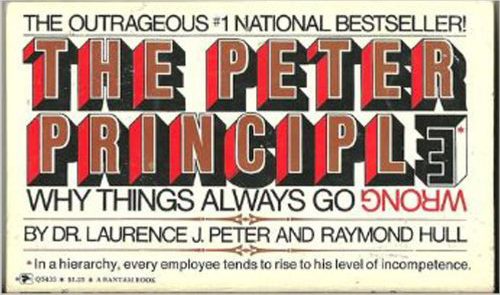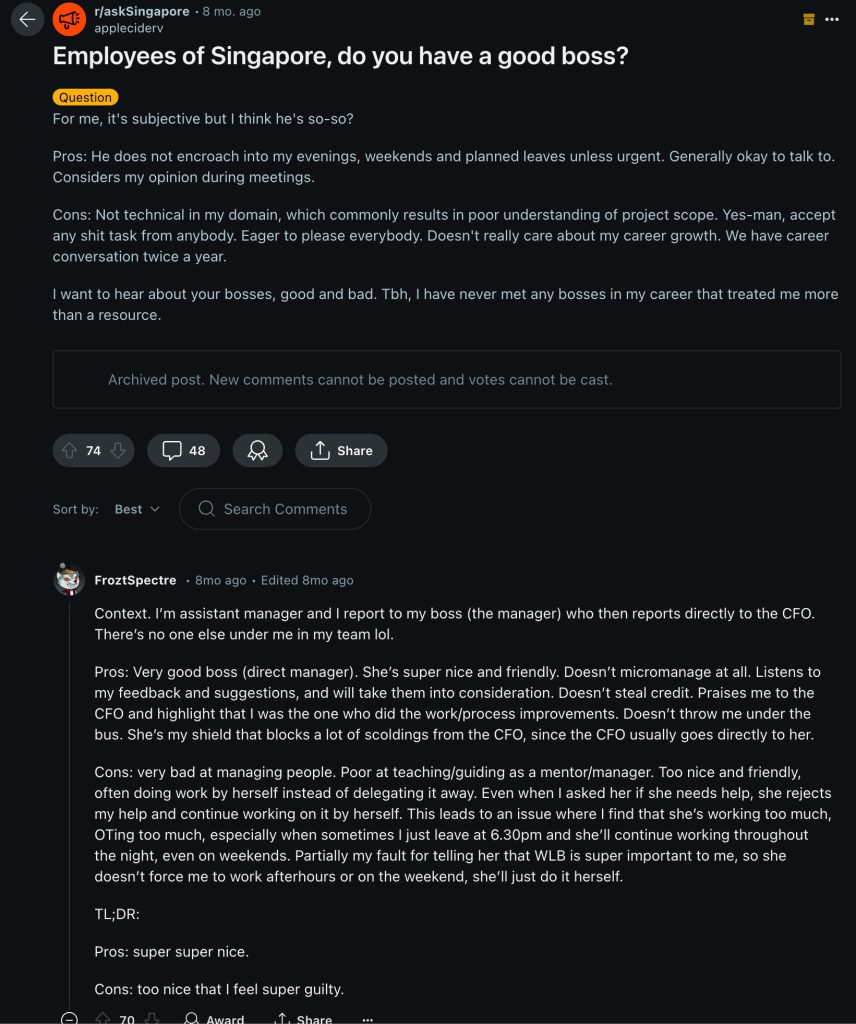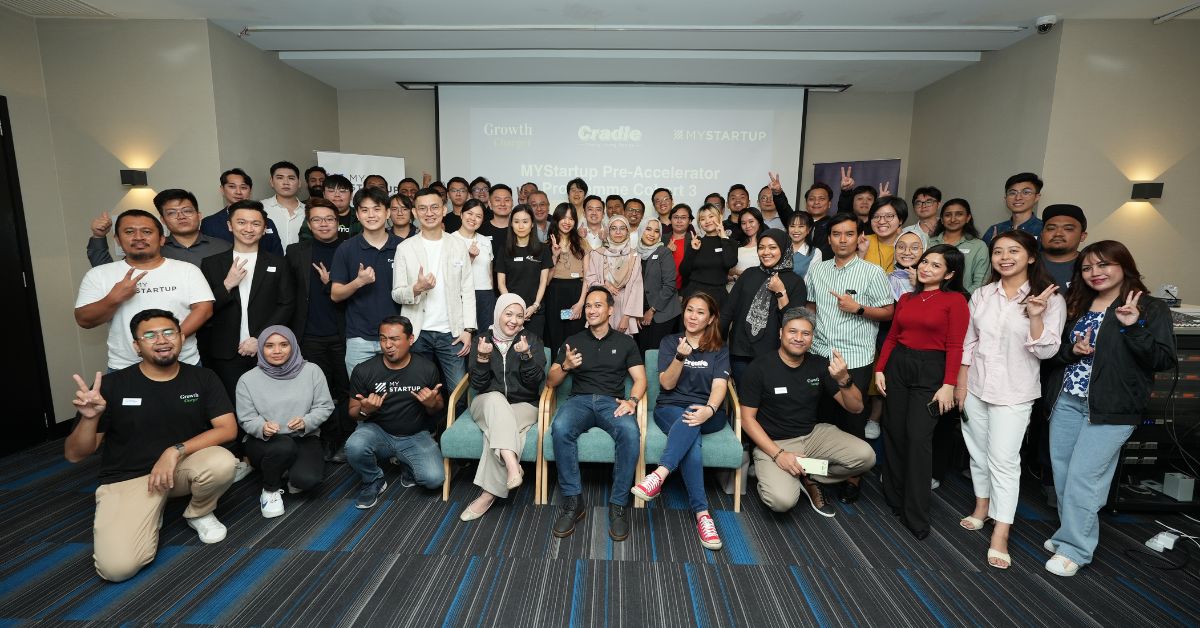If you are on CareerTok – the content side focusing on career advice and job market trends on TikTok, you may have come across this viral video:
@jacquelameo but if I take a week off everything falls apart? it ain’t adding up
? original sound – jacqueline
With a staggering 8.1 million views and nearly 925,000 likes, this TikTok video has sparked a massive debate on the platform. Many netizens have shared similar experiences, and content creators have given their two cents.
The commenters have placed many names and theories on the phenomenon, including The Peter Principle.
With the internet’s tendency to throw out “new and trendy” phrases for every situation, it’s time to set the record straight. What exactly is the Peter Principle? Does being nice to your employees matter, and what factors should you consider before accepting a job promotion?
The Peter Principle and work incompetence
Unbeknown to many, The Peter Principle is not a new concept. The theory was first made public in 1969 in the book The Peter Principle by Canadian educators Laurence Johnston Peter and Raymond Hull.

Peter defined the theory in the book as an observation, explaining that “in a hierarchy, every employee tends to rise to his level of incompetence.” Simply put, as you go higher up the corporate ladder, you will reach a point where you are outmatched in your role.
Now, you might be thinking, shouldn’t someone who just got promoted is better at their job? According to The Peter Principle, that is not necessarily true. To better illustrate this theory, here’s our example of how this theory is displayed at work:
You came into company ABC as a junior UI/UX designer. Because of your creativity and ability to deliver quality work on tight deadlines, you climbed up the ranks quickly to lead designer and eventually to senior designer on your second work anniversary.
At this point, you are still enjoying your work, as you still get to use your creativity on different projects. But in another meeting with your boss, you are offered another job promotion.
This time, it’s a managerial role, and like your previous promotion offers, you accepted it without a second thought, excited at getting started with your new role.
However, with each passing day, you get less excited about your new job. You find yourself designing less and are constantly swamped with paperwork, delegating tasks and scheduling meetings.
This also happened to be your first leadership role in a company, and you had a couple of hiccups due to your “inexperience,” which shook your colleagues’ trust in you.

So, where did it go south? Based on The Peter Principle, it was when you accepted the promotion offer to become a manager. The principle states that you might be a great and competent designer, but as managing a team is not your strength, it leads you to a state of “incompetence.”
Nice person, bad boss
We often use “the cream of the crop” to describe people who perform “the best” within a group. However, Peter took a satirical approach to the phrase in his book.
Look around you where you work, and pick out the people who have reached their level of incompetence. You will see in every hierarchy the cream rises until it sours.
Laurence J. Peter, co-author of The Peter Principle
In other words, there will come a time when you experience a plateau in your career, where you will remain at one post if you cannot make a breakthrough in your current role.
The paradox presented by this theory has since generated many conversations about promotion mistakes, and unfortunately, it is still relevant and apparent in the workforce today. A Reddit thread titled “Employees of Singapore, do you have a good boss?” had many netizens chiming in about the strengths and weaknesses of their superiors.

While most commenters appreciated that their bosses are “nice” to interact with, they cannot deliver as leaders – lack of delegation, guidance and understanding of the work done are the common weaknesses mentioned.
This brings forward a hard truth that needs to be said—if you cannot perform well as a leader, being nice to your subordinates does not matter anymore.
With that said, should you accept the job promotion?
The answer is: it depends.
A multitude of factors needs to be considered before accepting a job promotion, and according to this Forbes article, it includes:
1. Do you know the ins and outs of your new role?
A clear picture of how you will work is crucial before accepting your promotion offer. Will there be a difference in your workload? What are the new responsibilities that I will be handling? Who will I be working with? How will this role help me in my career?
2. Will your work-life balance be compromised?
As you move up to a higher position within the company, does the role require you to be in the office more often? Will your work hours change? Do you still have time for yourself?
3. Do you have the necessary skills for the role?
This is where you need to be extremely honest and impartial to yourself, as it can affect whether you will continue to thrive or become stagnant in your career. What shortcomings could hinder your performance, and do you intend to improve that skill when you accept the offer?
If you can understand your new role, adapt to new changes in your on- and off-work routine, and be willing to grow, then congratulations—you can take another step up the corporate ladder!
If not, then it means that you are not ready for the promotion, and you can look for potential growth opportunities within your current role or even in another company.
The bottom line is that a job promotion is more than receiving a pay raise and a better title. With all factors considered, you can continue to grow and prevent becoming another case example of The Peter Principle at work.
Featured Image Credit: Jon Jennings via LinkedIn








